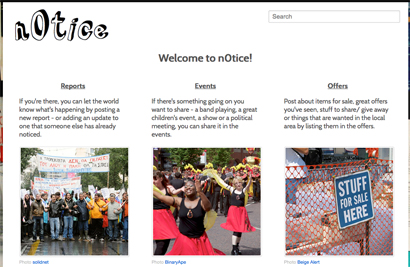Each week we give technology developers the opportunity to tell us journalists why we should sit up and pay attention to the sites and devices they are are working on. This week it’s citizen journalism site Orato.

1) Who are you and what’s it all about?
I’m Paul Sullivan, editor-in-chief of Orato.
Orato is a citizen journalism site that features stories from 3525 (last count) citizen correspondents from around the world.
Anyone can post text, audio, video story or photo slide show and comment on the site after registering.
We encourage first-person accounts, partly for practical reasons – people are comfortable speaking in their own voice about what they encounter, what’s going on in their lives, and what they think and feel – but also because it communicates on a more intimate level.
2) Why would this be useful to a journalist?
Orato is useful to journalists as a source of fascinating stories that don’t stem from the usual sources or locales.
On the home page, as I write, there’s a piece by a guy who kills baby seals for a living on the ice of Newfoundland, who is unapologetically carrying on a family tradition; there’s a story from the jackman (he jacks up the wheels) for the Nascar Red Bull team…he watches the cars go by at 198 miles an hours, then has to be ready in a split second to change the tires on his driver’s car; there’s a story about a family in Turkey who walks on all fours – their standard means of locomotion, a piece from a guy who spent more than a decade high up in Scientology’s secret army, and a piece from an astronaut on what it’s like to walk in space.
Some of these pieces we’ve solicited; others have come unbidden.
Orato is a treasure chest for journos looking for stories. It is also a place where journalists can and do post pieces that are viewed as too controversial or unpublishable at their own workplace.
3) Is this it, or is there more to come?
We’re already formulating Orato 3.0 (2.0 introduced video and interactive features such as the activity tracker).
In 3.0 we’re going to focus even more on the social media dimensions of the site…allow correspondents to instant message each other, allow them to customize their own MyOrato home page to display the subjects they’re interested in, etc.
We’re constantly thinking about new ways to expand citizen journalism – live video, versions in other languages, syndication of our best pieces using widgets, etc.
4) Why are you doing this?
For these reasons:
- Because it’s important. This site has become a platform for people who otherwise may have no public voice – the sex trade workers who covered the serial killer trial in Vancouver, the Scientology refugees who have come to the site to bear witness against an oppressive cult, people who have been abused by authority and people who just love to tell stories and are looking for a safe, reputable and credible place to do it. It’s a democratic phenomenon, one we’re proud to be a part of. escortcity
- Because people want it: now that the bandwidth and interactive technology exist, people are eager to participate and we give them at least one outlet.
- Because it’s exciting. It’s the marketplace for a magnificent variety of voices and experiences; it’s the court of public opinion.
- The wonder of it all: Strange and exotic stories appear out of nowhere. One day, the former chief executioner for Kenya decides to tell his story.
5) What does it cost to use it?
Nothing. It’s all free.
6) How will you make it pay?
We’re in the process of negotiating with online ad agencies to feature ads on the site. As traffic increases so will our CPM rate and our revenue. We have a number of other ideas in the development phase, but they’re not quite ready for prime time.

